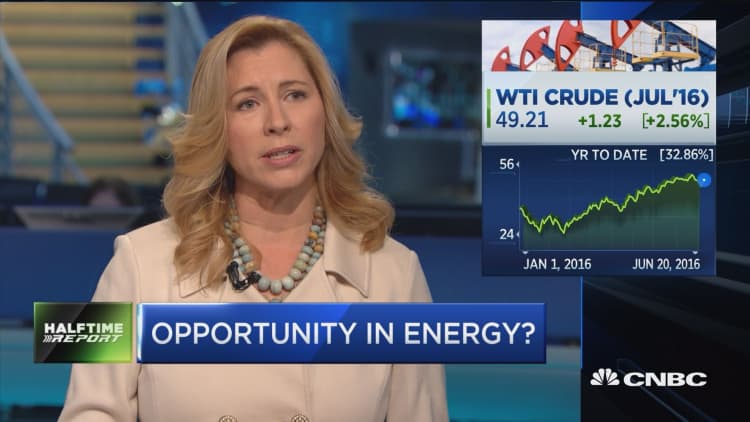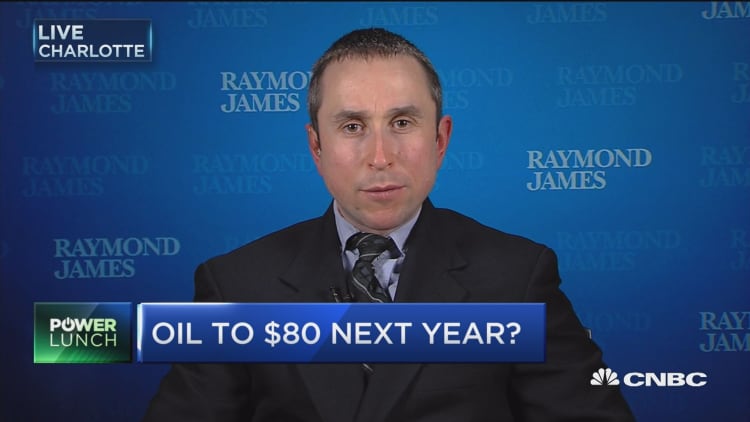
Oil prices reversed their losses in post-settlement trade after API data showed a bigger-than-expected draw on inventory.
U.S. crude stocks fell sharply last week, including a large draw at the U.S. hub in Cushing, Oklahoma, while gasoline and distillate inventories dropped, the industry group American Petroleum Institute said.
U.S. oil for August delivery traded up 28 cents at $50.24 a barrel 4:35 EDT, while Brent crude for August delivery traded up 35 cents at $50.95 a barrel.
Before the data was released, oil dipped on more speculation over Britain's future in the European Union, then pared losses to settle off session lows as a U.S. refinery outage triggered a rebound in gasoline prices.
Royal Dutch Shell shut its gasoline-producing fluidic catalytic cracking unit at the 316,600 barrel per day (bpd) Deer Park, Texas refinery. Gasoline futures, which had been down, rebounded into positive territory.
Crude futures pared losses as gasoline rebounded. Oil had dropped as much as 2 percent earlier as investors took profits on a two-day rally fed by speculation that Britain would not leave the European Union after a referendum this Thursday.

"The Deer Park news was certainly supportive to the market," said David Thompson, executive vice-president at Washington-based commodities broker Powerhouse. "The evolving 'stay' view for Britain in the EU and mounting troubles for Venezuela were other positives for oil."
Brent crude futures' front-month, August, settled down 3 cents at $50.62 a barrel, after falling more than $1 to a session low of $49.46. The contract had gained 7 percent in the last two sessions.
U.S. crude's expiring July front-month contract closed down 52 cents, or 1 percent, at $48.85 a barrel, versus a session low at $48.16. The more actively-traded August futures, the new front month from Wednesday, settled down 11 cents at $49.85.
Oil investors worried about the possibility of global crude supplies tightening from the economic crisis in Venezuela. Output from Venezuela, which sits atop the world's biggest oil reserves, was 2.37 million barrels per day (bpd) in May, down 5 percent from April and 11 percent from last year's average, according to OPEC data.
Crude futures also got brief support from news that rebels sabotaging Nigeria's crude exports had denied agreeing to a one-month ceasefire.
The Niger Delta Avengers' denial came after government officials told Reuters a truce had been struck with the group last week after talks involving Nigeria's oil minister, community groups and state governors in the Niger Delta, which produces most of the country's crude.
Investors will watch for weekly U.S. crude inventory data due from trade group American Petroleum Institute at 4:30 p.m. EDT (2030 GMT).
An updated Reuters poll forecast that U.S. crude stockpiles fell 1.7 million barrels last week, declining a fifth week in a row. The U.S. government will issue official inventory data on Wednesday.

— CNBC's Tom DiChristopher contributed to this report.

